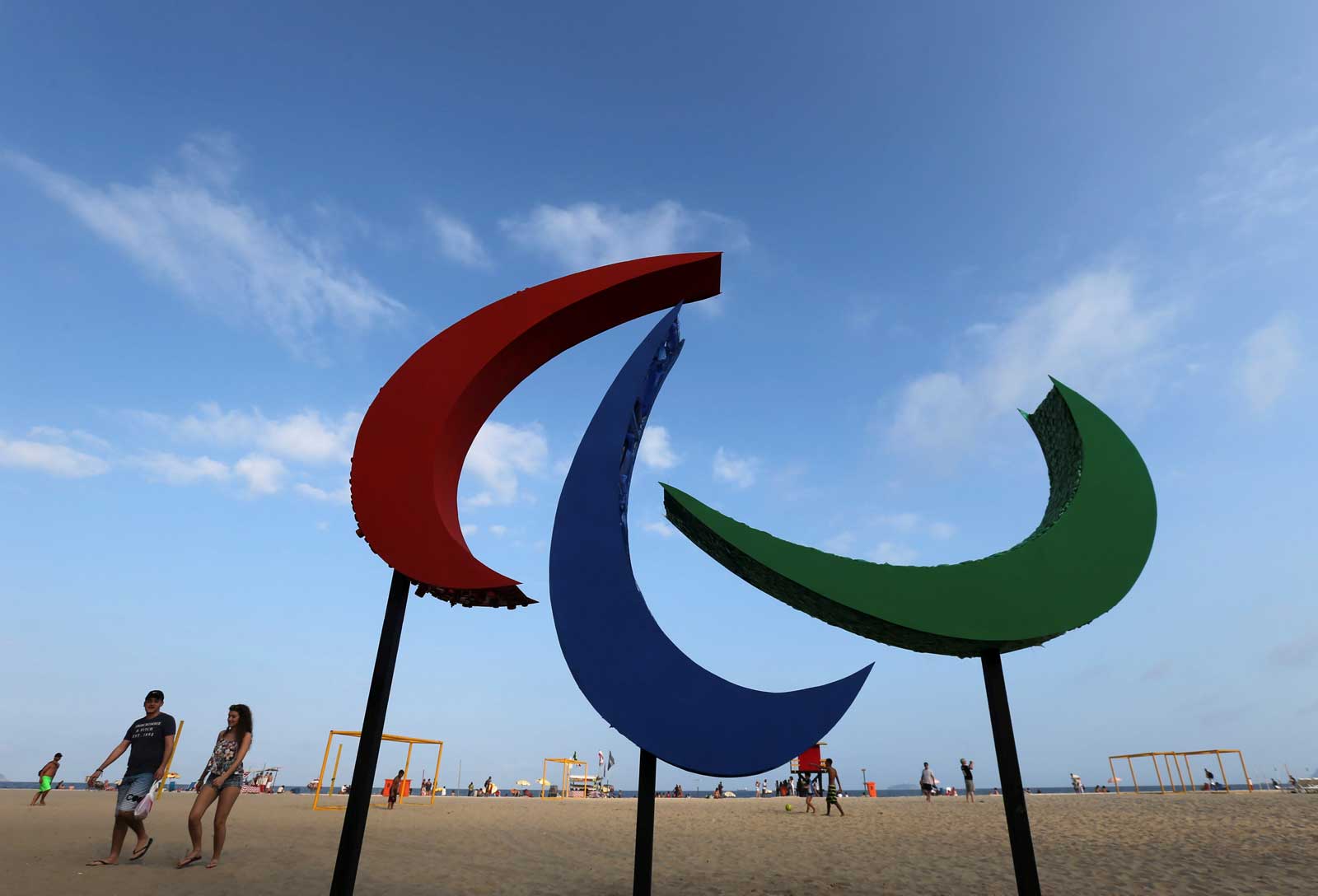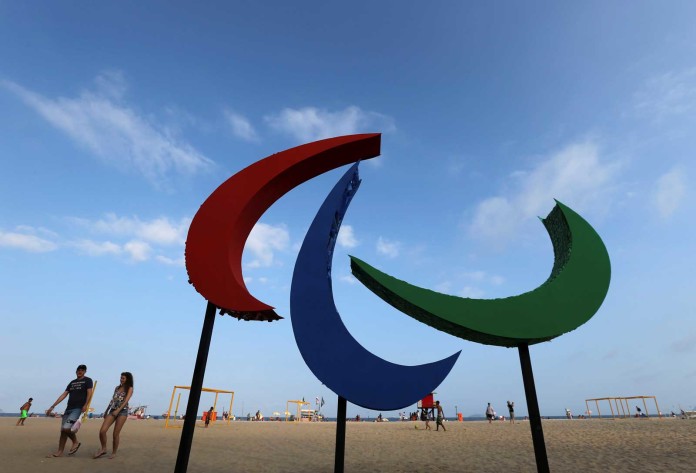RIO DE JANEIRO – Austere but as battling as ever, the Paralympics start in Rio de Janeiro on Wednesday hoping that rivalry in competition can overshadow controversy off the track.
Caught in political and economic crises, Rio 2016 organisers have skimped as far as they can on food, transport and accommodation. But they have not put off Iranian powerlifter Siamand Rahman, Britain’s wheelchair racer David Weir and China’s blind sprinter Liu Cuiqing as they seek sporting glory.
Rio’s problem is that it is following London 2012, hailed as the best Paralympics ever in terms of fervour and sporting performance.
To keep the Rio Games on track, city authorities had to promise 150 million reais (S$63 million) in August while the government got state companies to inject another 100 million reais in sponsorship.
International Paralympic Committee (IPC) president Philip Craven said that during the Rio Olympics he was sleeping two hours a night preparing to welcome the 4,300 para-athletes competing in 22 sports.
He said the cuts “are likely to impact every stakeholder attending the Paralympic Games”.
“The Games will happen, but they may not be – I wouldn’t say tip top, but maybe not as relatively luxurious as in the past,” he declared.
“Paralympians are resilient people, and the staff teams that back them up, and our Paralympic family will pull together,” he vowed.
The number of tickets reportedly sold has risen from 300,000 of the 2.4 million available on August 20 to 1.4 million last Friday.
“My expectations have been growing daily,” Craven said when giving his latest update.
Money may be less easy to find at the Paralympics than for its Olympic counterpart, but the controversy is the same: doping.
The IPC banned all Russian athletes from the Rio Paralympics over allegations of state-run doping made by Canadian lawyer Richard McLaren in his report for the World Anti-Doping Agency (WADA).
Russians are even excluded as neutral competitors.
The decision was “outside the law, morality, humanity,” according to Russia’s President Vladimir Putin.
The IPC remained unrepentant. “It wasn’t athletes that were cheating the system, it was the state-sponsored doping system that was cheating the Russian athletes,” Craven said on Friday.
With a host of para-athletes from other countries also suspended in recent months, Rio para-athletes can expect the toughest testing ever.
And with canoe-kayak and triathlon taking the number of sports up to 22, Rio will be looking to produce new sporting heroes now that London 2012 sprint star Oscar Pistorius is in a South African prison for the killing of his girlfriend.
The 41 career gold medals won by blind American swimmer Trischa Zorn between 1980 and 2004 looks unbeatable, but the Paralympics will inevitably produce new tales of courage.
The 28-year-old Rahman, disabled since birth, is aiming to become the first Paralympian to bench press 300kg. His rivals in the powerlifting over 107kg category have already conceded the gold medal to the Iranian.
China will have a record 308 athletes in Rio looking to beat their 95 gold medals from London when they topped the table for the third straight Paralympics.
They have swimmer Xu Qing competing in his fourth and possibly last Games, seeking to add to his seven gold medals.
Blind sprinter Liu Cuiqing last year inflicted the first defeat on reigning T11 400m champion Terezinha Guilhermina of Brazil in nine years.
Liu, 23, won four golds at the world championships, stunning the Brazilian, 13-years her elder, each time.
The Chinese woman thanks her coach Hu Zhengguan.
“I used to need help even in the simplest tasks like walking,” Liu said.
“Because of him, I can now run fearlessly on the track. Because of him, I am no longer unknown – I can run today under the attention of the world.”
After his glorious four golds in London, and two before that at Beijing 2008, British wheelchair racer Weir is looking to leave the Paralympics at the age of 37 with at least one more title.







